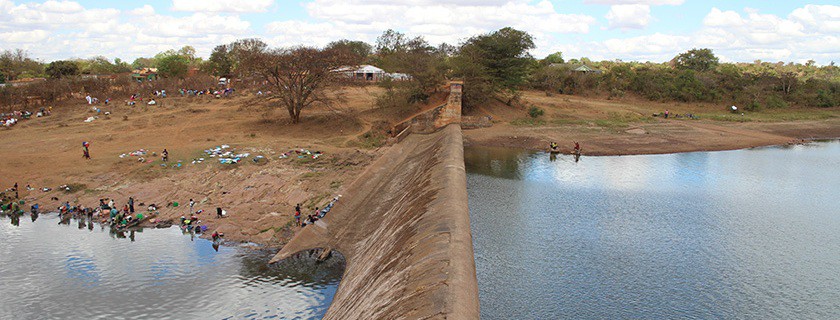Nemus begins two new studies in Malawi
After a first stage of selection of companies for a short list of six candidates (in May 2014), Nemus made it to the top of the list and won another international tender for two works in Malawi, that are sponsored by the World Bank, meaning they must meet high standards determined by this entity.
In fact, after having successfully finished two works in Malawi in 2013, Nemus is about to start two new others: an environmental and social impact assessment (ESIA) and a resettlement action plan (RAP), both concerning the Kamuzu I water dam that will be subjected to interventions to increase its reservoir capacity.
Kamuzu I and Kamuzu II are two sequential water dams in the Lilongwe River that store water to be supplied to the city of Lilongwe (capital of Malawi), located 20km downstream. The population of Lilongwe is now one million people but it is increasing rapidly and might reach 1.200.000 people in the next 10 years. Lilongwe was proclaimed capital city in 1975 (replacing Zomba), and since then the population has been growing faster each year.
The water supply infrastructures (planned for a population of fairly half the numbers predicted for 2025), together with the Lilongwe river flow regime (that includes periods of drought), make it fair to assume that in the short term, there might not be enough capacity to supply water to the whole population living in the capital city. This led to the need to increase the reservoir capacity of the Kamuzu I water dam, raising its level in about 5m.
Nemus will assess the impacts of these alterations, namely the expansion of the submerged land area, which might affect ecologically relevant areas as well as people. Studies to be developed by Nemus include: water quality and quantity, determination of environmental flows, environmental and social management plans of the affected areas, and also an assessment of the need to previously eliminate the vegetation in the areas that will become submerged. The resettlement action plan will also be an important challenge, since it will demand a regular presence on the ground and a close contact with the population in order to meet their needs and priorities.

